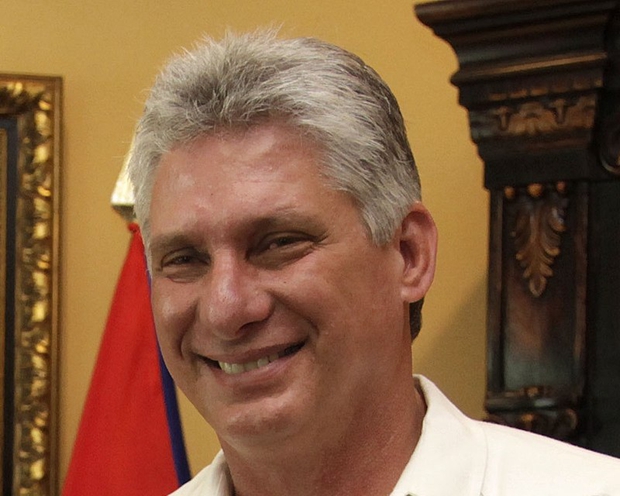A new beginning in Cuba
- By Sajjad Malik
 0 Comment(s)
0 Comment(s) Print
Print E-mail China.org.cn, April 30, 2018
E-mail China.org.cn, April 30, 2018

Cuba's President Miguel Diaz-Canel [File photo]
It is for the first time in modern Cuban history that the country will be ruled by someone not surnamed Castro. Following the communist revolution in 1959, the country had been ruled first by Fidel Castro until his retirement in 2006, and from then until last week by his brother Raul.
After more than 12 years in power, the younger Castro wisely decided to make way for Miguel Diaz-Canel, who was elected by the National Assembly as president with the onerous responsibility to protect the revolution and the future of the country.
58-year-old Diaz-Canel was a top figure in the ruling Communist Party and served as the first vice president under Raul Castro beginning in 2013, following the first transfer of power in the country from the iconic revolutionary Fidel two years earlier.
This peaceful transition to a non-Castro has ended speculation about who would become the new leader after the sun set on the Castro clan. Lack of any viable option from amongst the ruling family had made it quite difficult to predict the new leader of the party and the country.
The appointment of Diaz-Canel has also removed political uncertainty. The decision will strengthen the political order and improve the credibility of the Cuban system, as it has the potential to evolve and overcome future challenges.
But it is just one step forward, as the new leader faces several challenges. The foremost is that he will have to operate under the shadow of Raul, who is still head of the Communist Party as well as head of the armed forces. So, Diaz-Canel will have limited space for political maneuverings.
Second, Diaz-Canel is from the second generation of leaders and less revered than the ones who took part in the revolution. Raul's job was easier when he was put into the shoes of Fidel, as the two were quite literally brothers in arms. He had more credibility in the eyes of the public and the party, and was the natural choice.
The third major challenge for Diaz-Canel is related to the economy. Despite heavy odds, the Castros kept the ball rolling and never let the country slip into economic chaos. Diaz-Canel's challenge is not only to maintain the current level of stability but also to improve the situation.
He will have to open up the economy and execute a series of reforms to bring in investment and expedite growth. It may not be easy, as his rise to power coincided with a very different kind of leadership in the neighboring U.S. It is likely that Donald Trump will test the new Cuban leader in order to assert his own power.
The fourth challenge for the new Cuban president will be how to build diplomatic relationships with world leaders and strategic ties with different nations. Fidel had a typical world vision which was the product of his revolutionary zeal and commitment. Raul slightly deviated and tried to build ties with the U.S. in a bid to reduce hostility in the neighborhood.
Diaz-Canel needs to look in new directions and build commercial, diplomatic and political ties with all leading capitals. While sticking to revolutionary ideals, he should put the economy first on his list of priorities and try to follow the path China took four decades ago.
Cubans have been accustomed to only one brand of politics and a system synonymous with the name Castro. The general public may take time to adjust to the new reality, and some may even try to test the resolve of the new leader. Hence, the president should be watchful during his initial years.
Diaz-Canel showed his mettle as leader when, in his first address soon after his election as president, he committed to following the path of the revolution but also to his own work. "I am here to work, not to make promises," he said.
He is the one tasked to lead the country at the start of a new phase of history in Cuba. Those who only knew the Castros should now realize that that chapter has come to a close.
Sajjad Malik is a columnist with China.org.cn. For more information please visit:
http://www.china.org.cn/opinion/SajjadMalik.htm
Opinion articles reflect the views of their authors, not necessarily those of China.org.cn.






Go to Forum >>0 Comment(s)